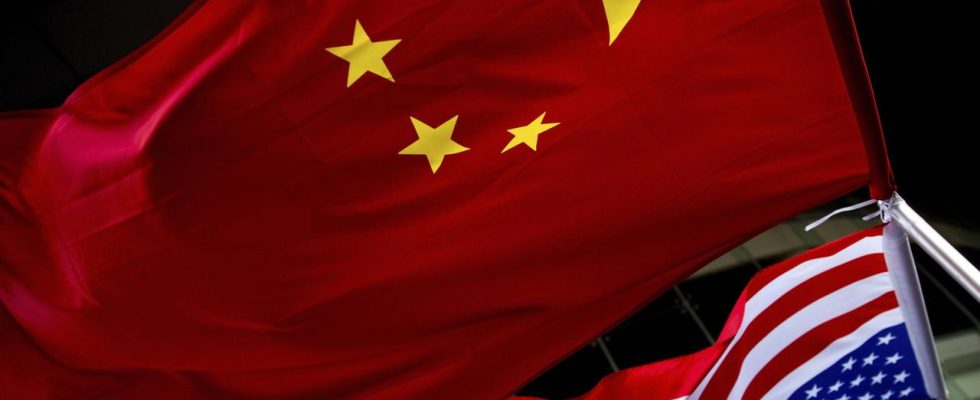analysis
China knows where it hurts: The export controls for rare metals agreed in the trade dispute with the USA could easily be expanded. That makes the West nervous.
Wei Jianguo’s statements left nothing to be desired in terms of clarity. The recently announced export controls for certain raw materials for chip production are a “well thought-out hard blow” and “just the beginning,” China’s former deputy trade minister told the pro-government newspaper “China Daily” on Wednesday. He is an influential adviser to the government in Beijing. “If restrictions on China’s high-tech sector continue, countermeasures will escalate,” Wei threatened.
At the same time, the state-run Chinese newspaper “Global Times” published an editorial praising the export controls for germanium and gallium as a “practical way”. They showed the US and its allies that efforts to keep China away from advanced technologies were a miscalculation.
That’s heavy baggage for US Treasury Secretary Janet Yellen’s visit to China today. Experts see a new trade war looming. “This is clearly designed to send the not-so-subtle message to the US President Joe Biden’s administration that China is in good shape when it comes to semiconductor, aerospace and automotive inputs and is increasingly poised to sell US inflicting pain on companies,” said Paul Triolo, China expert at consulting firm Albright Stonebridge. “The risk of a rapid escalation of US-Chinese tensions is not small,” said experts at investment bank Jefferies.
high escalation potential
There is enough potential for conflict for a full-fledged trade war – even apart from the increasing geopolitical alienation. Most recently, the USA had restricted the export of high-performance chips and machines for their production – with the barely concealed goal of decoupling China and its military from the current trend in artificial intelligence (AI). Western governments are also urging telecom companies to refrain from using components from Chinese manufacturers such as Huawei in their mobile networks due to security concerns.
Commodity controls planned for August are not China’s first retaliatory measure. In May, Beijing banned certain companies and organizations from using chips from the US manufacturer Micron.
Even if the restrictions announced so far do not yet pose unsolvable problems for western manufacturers, it is clear that a further escalation – especially with further light metals and rare earths – would have significant effects. Western countries are following the development with concern.
Risky dependencies
China’s strategy of securing production capacities for rare metals worldwide, especially in Africa and Latin America, in addition to its own ample resources has been discernible for years. The People’s Republic also has the upper hand here because its exploration projects pay less attention to environmental and social standards.
The resulting dependencies have also been discussed in the West for years – but little or nothing has happened so far. At the end of March, for example, Commission President Ursula von der Leyen warned that the EU obtains 97 percent of its lithium, an indispensable component of batteries for e-mobility, from China. Germany recently relied on imports from China for 92 percent of the rare earths needed for the construction of high-tech components, for example in the field of renewable energies.
“We are working on securing the long-term supply of critical and strategic raw materials and reducing problematic dependencies,” explained Franziska Brantner, Parliamentary State Secretary in the Federal Ministry of Economics.
to fear a rise in costs
Even if individual producing countries and manufacturers in Europe see the impending restrictions as an opportunity – effective export restrictions by China would cause serious problems for the western economies.
Substitution, which is now being discussed more intensively, is often possible, but usually only at the price of significantly higher costs or loss of performance. If companies switch to other raw material suppliers who produce less cheaply and often in smaller volumes, this increases procurement costs.
At the same time, some importers view foreign policy goals with skepticism. The Association of German Machine and Plant Manufacturers (VDMA), for example, called for agreements not to be overloaded “with non-trade issues such as environmental, climate and human rights aspects”. “Otherwise fewer and fewer countries will want to conclude agreements with the EU.”
Silicon instead of germanium?
In some cases, the raw materials themselves can also be substituted with others, although this often entails undesirable performance losses. Example Germanium: According to the US Geological Survey (USGS), the scientific authority, the semiconductor metal can be partially replaced by silicon. Zinc selenide is a possible alternative for infrared devices. However, this usually degrades performance.
Wherever Chinese imports could be substituted, as in the case of Russian raw material supplies, it would usually involve higher costs. This could lead to a new inflationary boost, which would be a burden on the economy in the current economic situation.

